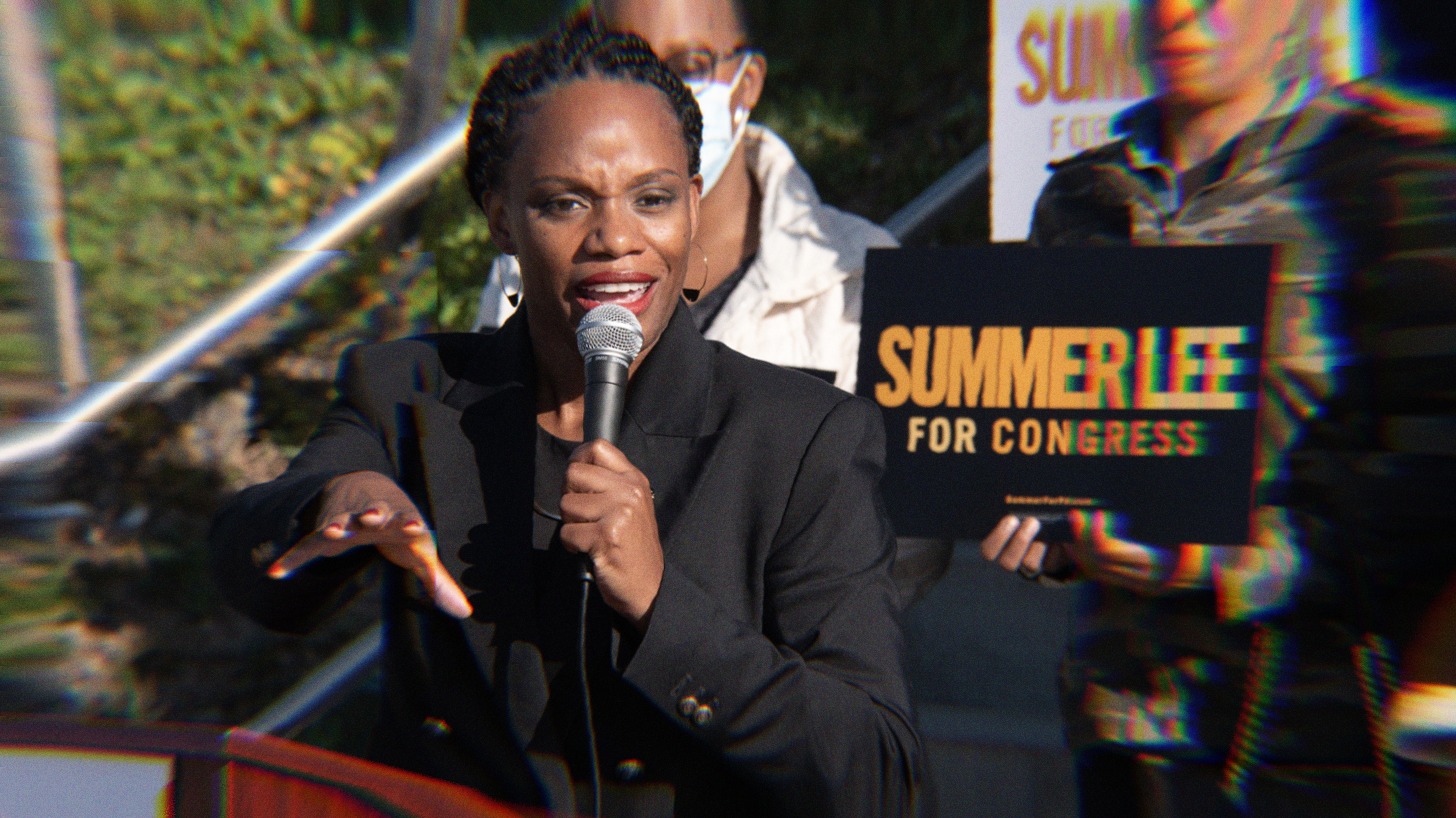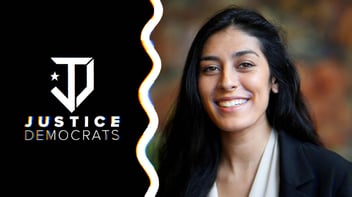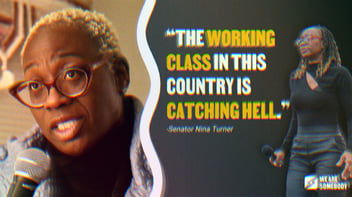Progressive Spotlight: Summer Lee.
Not Afraid of a Fight.
 Image Description: Summer Lee speaking at an event with signs behind her that say Summer Lee for Congress.
Image Description: Summer Lee speaking at an event with signs behind her that say Summer Lee for Congress.
Like other members of The Squad, Summer Lee has a unique ability to occupy space in the minds of corporate Democrats and their donors—many of whom simply can’t understand why regulator votes would elect someone who favors policies that would improve their lives.
If you needed any more evidence that the corporate wing of the party views the progressive from western Pennsylvania as a legitimate threat, look no further than comments made by Bhavini Patel, one of Lee’s challengers in her upcoming Congressional primary.
“She is so fringe and so extreme,” Patel, a local council member, reportedly said about Lee during a fundraising call.
That wasn’t the only news to come out of the donor call, however. Patel also used the occasion to encourage Republicans and Independents to change their voter registration to Democrat in a not-so-veiled attempt to turn the upcoming primary into something of a general election. (Talk about extreme!)
Lee, who represents Pennsylvania’s 12th Congressional district, should parlay that ostensible missive into a fundraising opportunity, splashing the quote all over stickers, buttons, and mugs—anything inanimate.
We’re only half-joking because Lee is seemingly doing just fine on her own.
According to recent filings, Lee’s re-election campaign raised $1 million in the final quarter of 2023, giving the incumbent a decisive edge financially compared to her competitors. This is great news considering that a tsunami of outside money will likely flood the race. Lee will need every penny of that—and future hauls—to stave off a corporate coup of the primary. Luckily for her, she has everyday people on her side—90% of donations to Lee’s campaign are $250 or less, according to her filings.
As for other presumed Democrats coming for her seat, Lee poses a legitimate question: “Why are my opponents always courting Donald Trump’s donors?”
Perhaps it’s because she offers an alternative to the incestuous nature of campaigning, which is too often about courting donors, not voters.
An accomplished grassroots organizer and campaigner, Lee faced a barrage of attacks from special interest groups two years ago in her bid to become the first Black woman to represent Pennsylvania in Congress.
The AIPAC-affiliated super PAC, United Democracy Project, invested more than $2 million in the Democratic primary, which Lee won by a very slim margin. Lobbying groups have been preparing for a rematch against Lee and her Squad colleagues, with AIPAC reportedly gearing up to spend an estimated $100 million in this year’s election cycle.
Lee should view the characterization that she’s an “extremist” as a badge of honor—especially when those trying to unseat her want to use their wealth to circumvent true democracy.
“As long as corporations can funnel billions into elections, our democracy will continue to belong to the highest bidder,” Lee says on her campaign site. “In Congress, I’m fighting back against corruption and for comprehensive campaign finance reform that ends Citizens United and puts campaigns back into the hands of the people is a necessary step to rebuilding our democracy.”
Guess we know why they’re mad.
In her first term representing Pennsylvania’s 12th Congressional District, Lee supported various progressive policies, including a Green New Deal, Medicare for All, voting rights, reproductive rights, and much more. Her campaign platform also includes a section on “disability justice,” a hugely consequential issue rarely discussed.
Since entering Congress, Lee has remained true to her grassroots, well, roots. And to the dismay of those residing in elite and wealthy circles, Lee has made clear where her priorities lie: The people of her district.
It seems to us Lee is built for these fights. And selfishly, we hope she keeps winning.
Image Source
- Mark Dixon, CC BY 2.0, via Wikimedia Commons. Changes were made.
Rashed Mian is the managing editor of the award-winning News Beat podcast and co-founder of the newly launched Free The Press (FTP) Substack newsletter. Throughout his career, he has reported on a wide range of issues, with a particular focus on civil liberties, systemic injustice and U.S. hegemony. You can find Rashed on X @rashedmian and on Bluesky @rashedmian.bsky.social.


